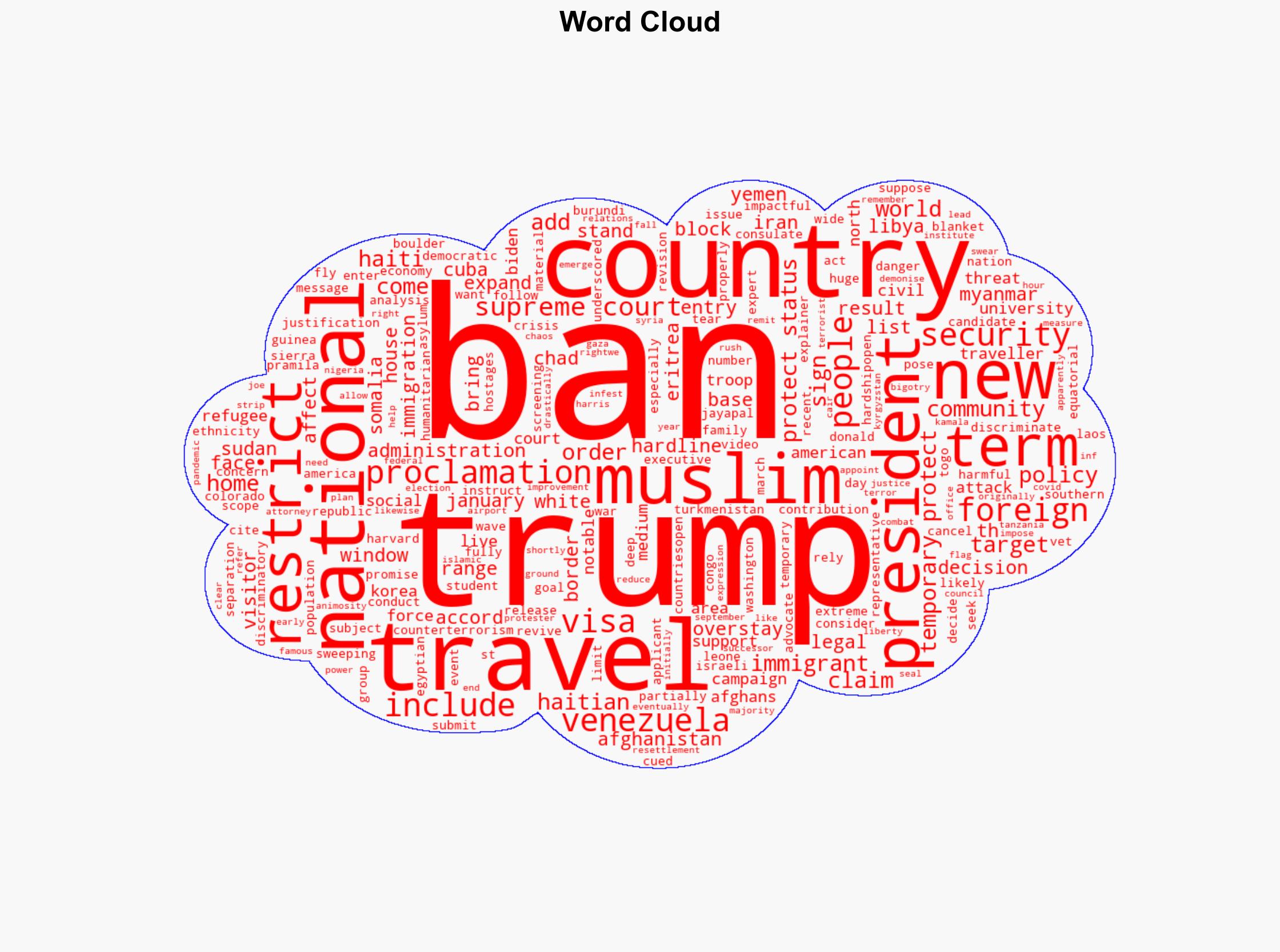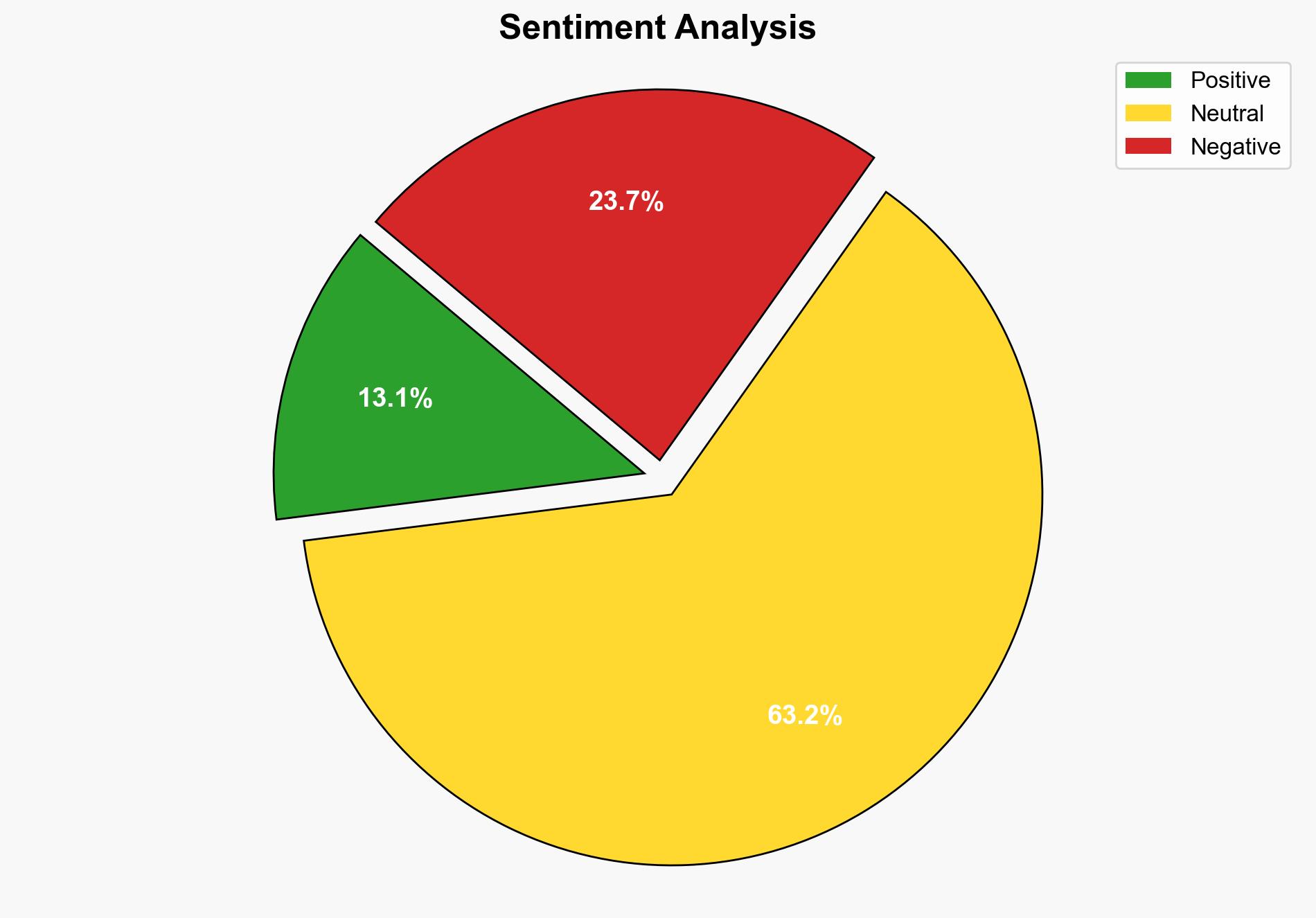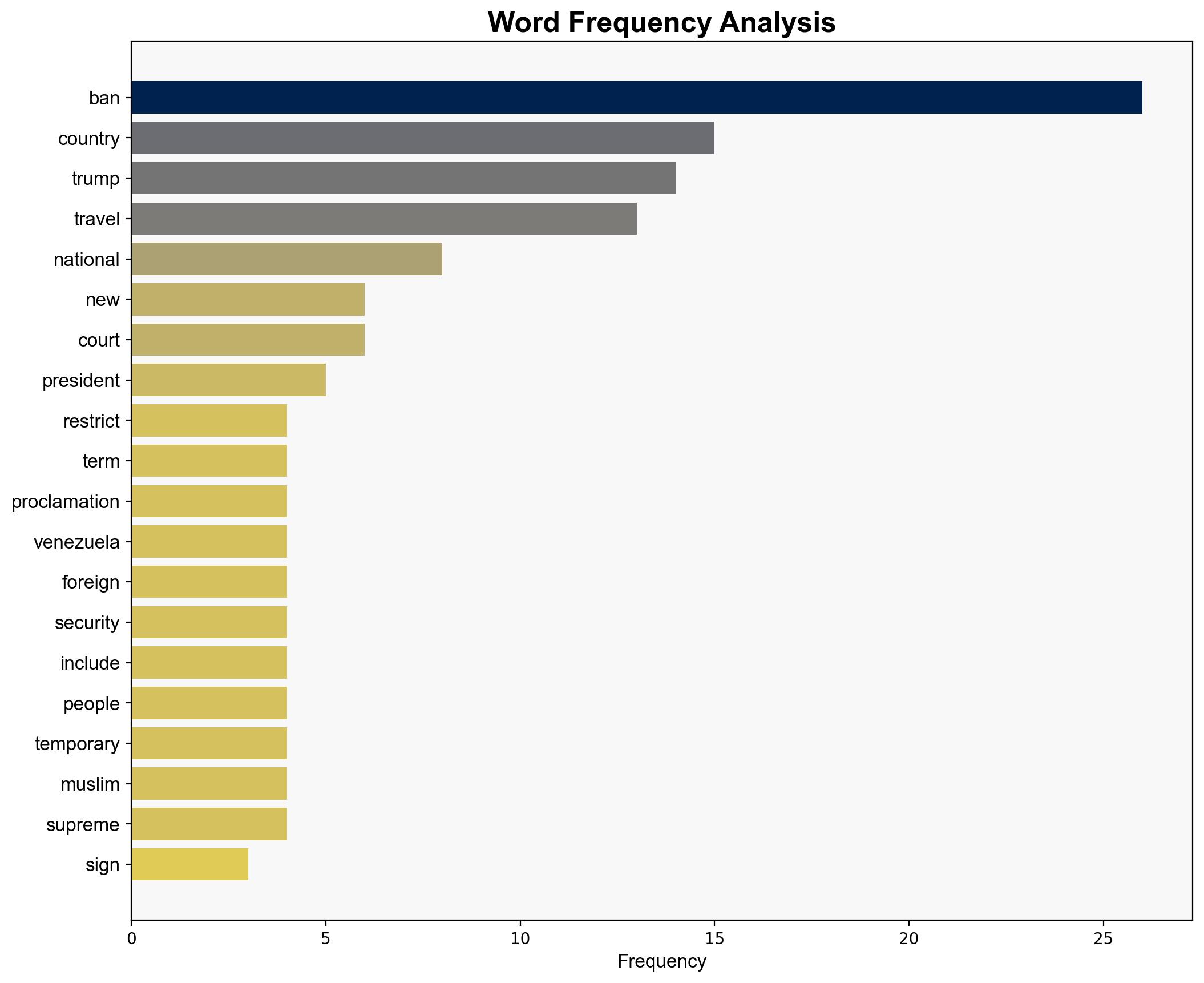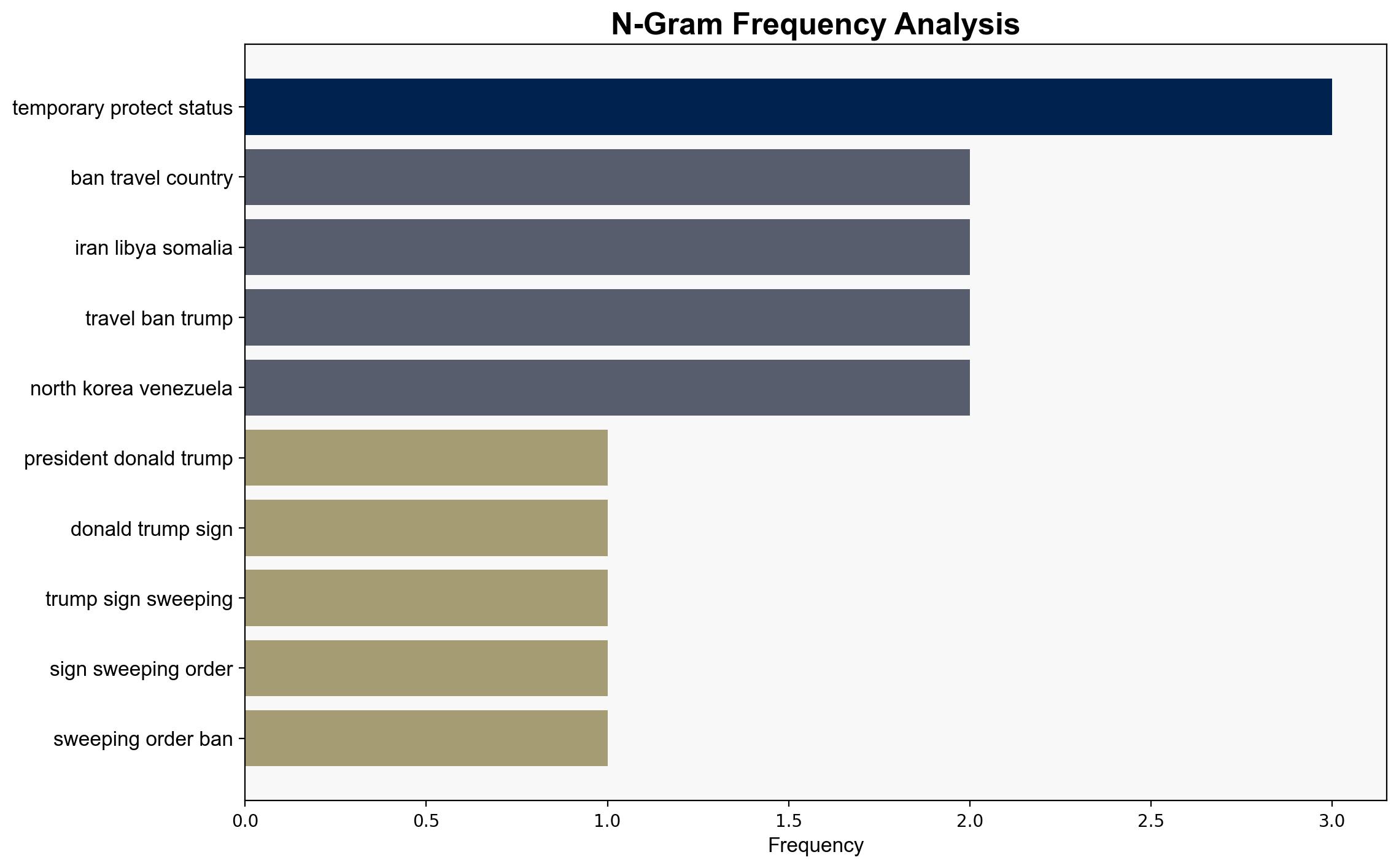Trump signs ban on citizens entering the US from 12 countries including Iran Haiti and Afghanistan – The Irish Times
Published on: 2025-06-05
Intelligence Report: Trump signs ban on citizens entering the US from 12 countries including Iran, Haiti, and Afghanistan – The Irish Times
1. BLUF (Bottom Line Up Front)
The recent executive order signed by Donald Trump imposes a travel ban on citizens from 12 countries, citing national security concerns. This action is part of a broader strategy to enhance border security and counter-terrorism efforts. However, it raises significant concerns about potential discrimination and the socio-economic impact on immigrant communities in the US. It is recommended that stakeholders closely monitor the implementation and legal challenges of this policy to assess its long-term implications.
2. Detailed Analysis
The following structured analytic techniques have been applied to ensure methodological consistency:
Causal Layered Analysis (CLA)
– **Surface Events**: The signing of the travel ban is a direct action aimed at restricting entry from specific countries.
– **Systemic Structures**: The ban reflects ongoing US immigration policy shifts towards stricter border controls.
– **Worldviews**: The policy is rooted in a worldview prioritizing national security over open immigration.
– **Myths**: The narrative of protecting the homeland from external threats is a driving myth behind the ban.
Cross-Impact Simulation
– The ban may strain diplomatic relations with affected countries, potentially impacting trade and cooperation on global issues.
– Economic dependencies on immigrant communities could lead to local economic disruptions.
Scenario Generation
– **Best Case**: The ban effectively enhances national security without significant legal or diplomatic fallout.
– **Worst Case**: Legal challenges overturn the ban, leading to political backlash and further polarization.
– **Most Likely**: The ban faces legal scrutiny but remains partially implemented, causing ongoing debate.
3. Implications and Strategic Risks
The travel ban may exacerbate existing tensions with countries like Iran and Venezuela, potentially leading to retaliatory measures. Domestically, the policy could deepen divisions and provoke civil unrest. The risk of cyber-attacks from affected nations or groups opposed to the ban could increase, posing a threat to national cybersecurity.
4. Recommendations and Outlook
- Monitor legal proceedings and public response to the travel ban to anticipate potential policy adjustments.
- Engage in diplomatic dialogue with affected countries to mitigate international tensions.
- Enhance cybersecurity measures to protect against potential retaliatory cyber-attacks.
- Scenario-based projections suggest maintaining readiness for both legal reversals and enforcement challenges.
5. Key Individuals and Entities
– Donald Trump
– Pramila Jayapal
6. Thematic Tags
national security threats, cybersecurity, counter-terrorism, regional focus




